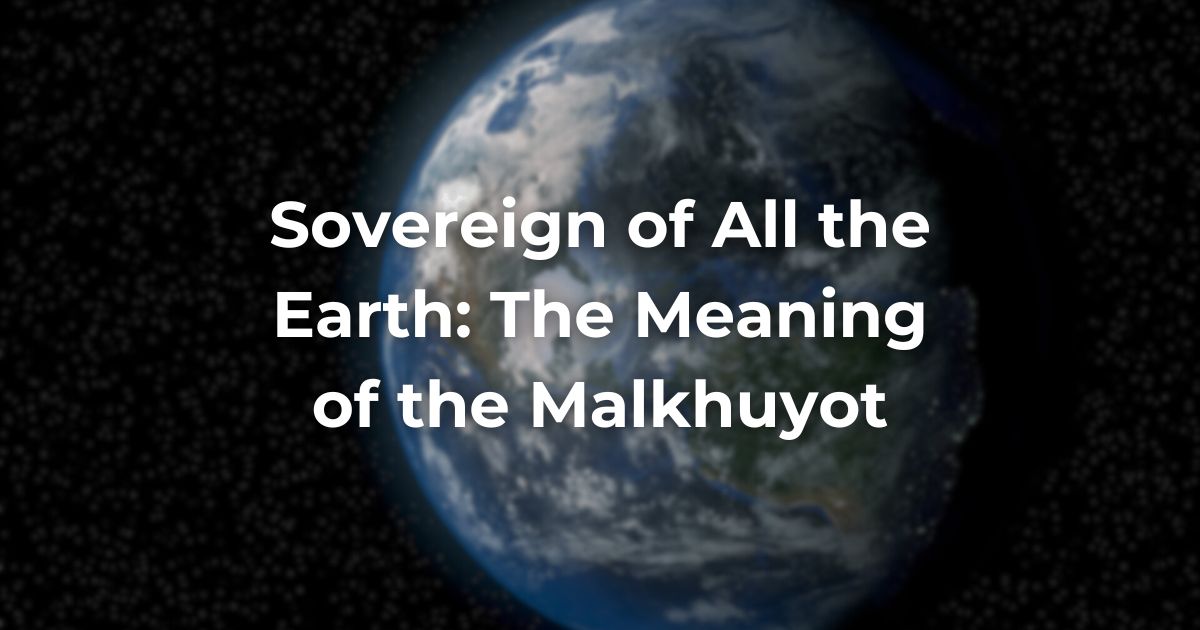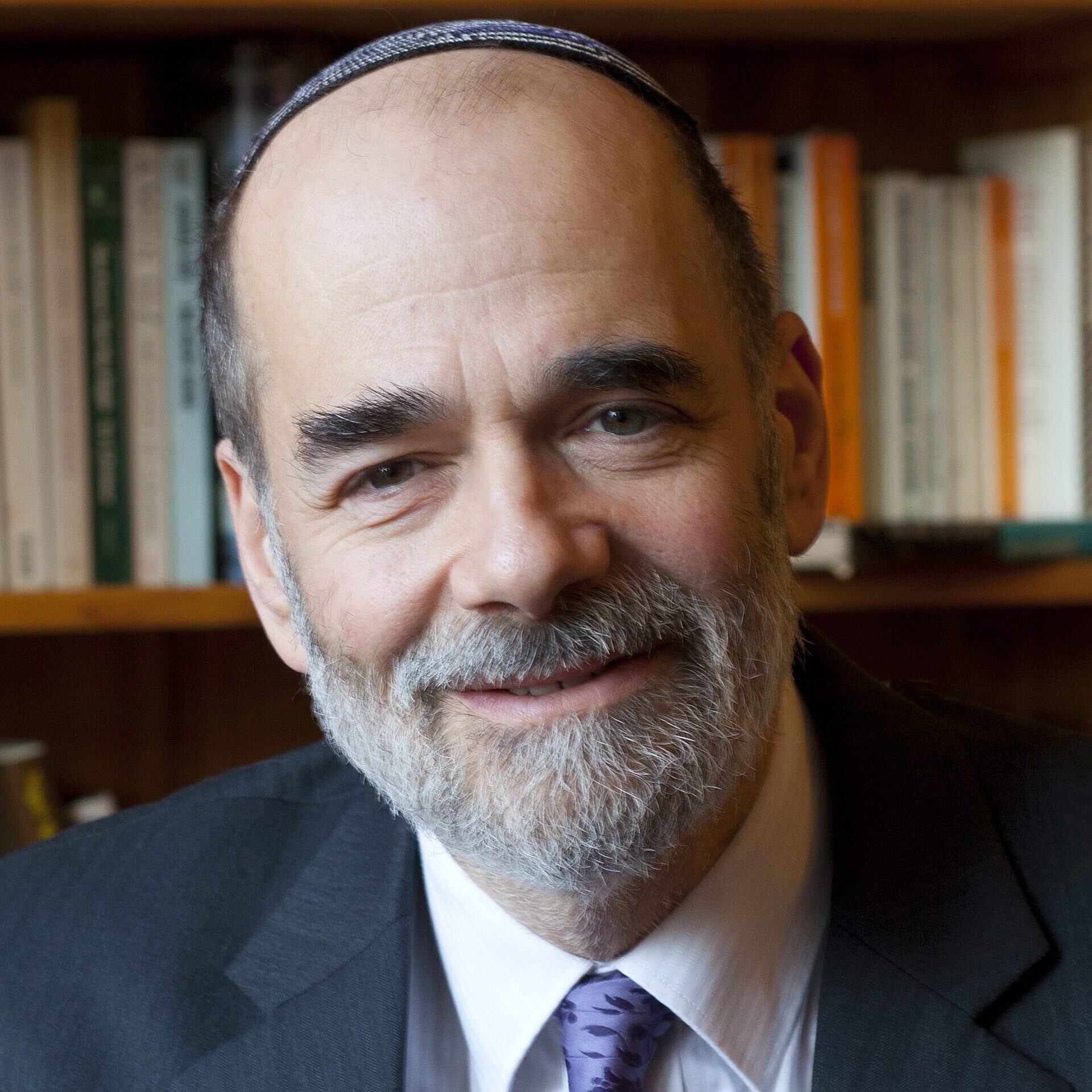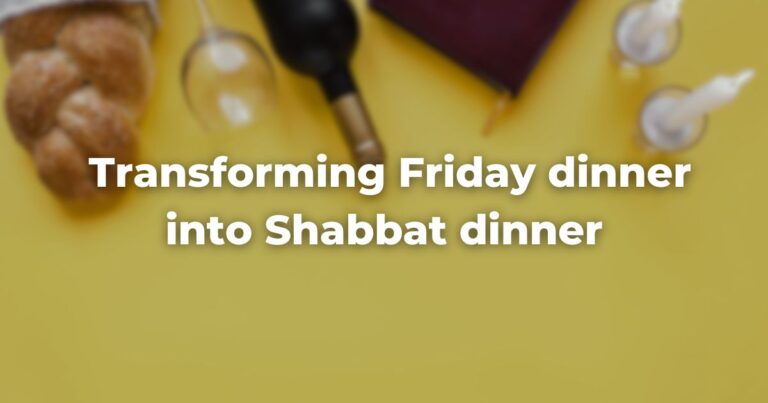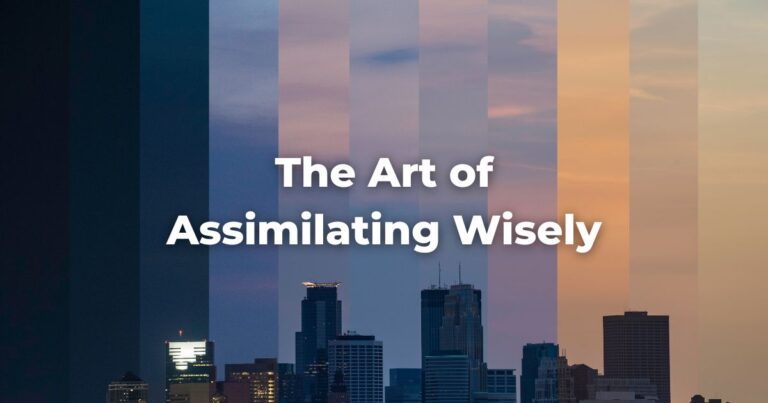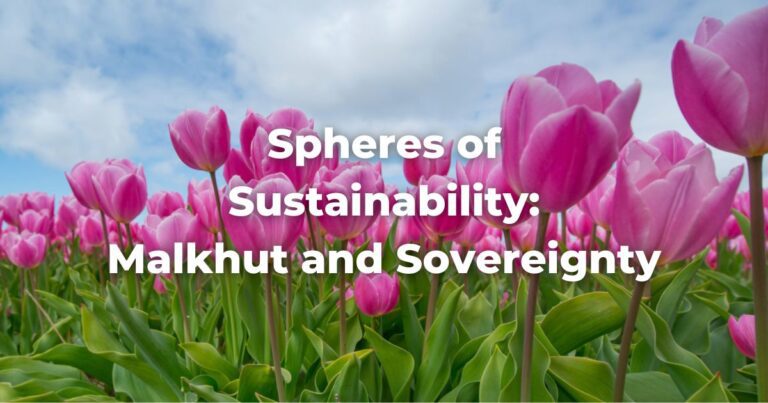This piece is part of Exploring Judaism’s 5785 High Holiday Reader. Download the whole reader here.
On Rosh Hashanah, we proclaim God ‘Melekh al kol Ha’arets, Sovereign over all the earth.’ This blessing concludes the Malkhuyot, the meditation on God’s sovereignty, which, underlined by ten biblical verses, forms the first of the three unique sections of the New Year Mussaf service. Rosh Hashanah has been described as the most universal of Judaism’s festivals, the day when ‘all who enter the world come before God,’ when we look forward to the time when ‘every breathing being shall declare “the God of Israel rules.”’
But who do we mean when speaking of ‘every breathing thing’? How truly inclusive is our vision of God’s sovereignty, and what implications does this have for how we live?
I think about this in terms of expanding circles. The first circle is us.
It may sound selfish but at the center are I and you. Life is a gift. What brings us consciousness, what, in moments of awe and love, makes us know with an intimacy deeper than thought that we belong to this great wonder?
It is nishmat chaim, the spirit of the breath of God, that flows through all life.
Rosh Hashanah calls on us shetamlikhuni aleikhem, to make God sovereign over us, that is, to acknowledge the Divine as the giver and quintessence of our life, and to strive to be faithful to this awareness of God in all our conduct, most especially in how we treat every other living being.
The second circle is the Jewish world.
Together, in our communities in Israel and across the globe, we affirm the centrality of God throughout the history of our people and for us today. It’s impossible to agree on a definition of what being Jewish means: are we a nation, culture, religion, a mosaic of shared experiences of prejudice and exclusion?
But whether we believe in it or not, whether we struggle with, reject, or embrace it, or do all three at the same time, at the core of Judaism is faith in the oneness of God. In the words of Leo Baeck, written to be read across all synagogues in Germany on the bleak Kol Nidrei of 1935:
We stand before our God; we draw strength from His Commandments, which we obey. We bow down before Him, and we stand upright before Men. Him we serve, and remain steadfast in all the changes around us.
The third circle includes all humanity.
We acknowledge God not just as our God, but as God of all humankind.
Abraham Joshua Heschel offered a pithy definition of idolatry: ‘What is an idol? Any god who is mine but not yours, any god concerned with me but not with you…’ Our Rosh Hashanah prayers emphasise God’s care for all human beings, Jews and non-Jews, with all our failings and strivings.
There are many ways of affirming God’s presence; the proof of their value may lie less in their theological theories than in the quality of the conduct by which they lead their followers to live.
At the close of this particular brutal year, with the horrors inflicted on Israel by the merciless nihilism of Hamas, the misery of the hostages and their families, the grief and trauma across Israel, the terrible suffering and destitution of innocent people in Gaza caught in the subsequent war, and the waves of antisemitism and race hate which have followed, it is especially challenging and painful to be mindful that God is the one God of us all.
If everyone were aware that even those who are our enemies ‘come before God,’ the world would be a very different place.
But we are far from living out the truth that every human being is created in the image of God. The most we can do, and this is hard enough, is to try to treat everyone we encounter in our ordinary, daily lives with the respect and care deserved by those who carry God’s name and are fashioned in God’s image.
The Fourth circle includes all life, including non-human life.
Even then, it’s not enough in this troubled, overheating world to think only of all human beings as precious before God. What of non-human life? Don’t the birds and animals belong within God’s sovereignty, too?
God rebukes Jonah for failing to care sufficiently not only for the tens of thousands of citizens of Nineveh but also for behemah rabbah, ‘much cattle.’ These, the closing words of the afternoon prophetic reading, hang over us as we near the close of Yom Kippur, challenging our anthropocentrism and the blindness, negligence, contempt, and cruelty with which we so often treat other species.
As the Psalmist said, ‘God’s mercies extend over all God’s works’: animals, too, fall within God’s care and command our consideration.
Amplifying the commandment into an injunction not to cause suffering to animals, Maimonides observes that they feel pain as acutely as we do. Echoing him almost a century later, Nachmanides notes with characteristic compassion that certain animals have the capacity not just for deep feeling but also to exercise choice, as we can see from household pets who love us.
Contemporary philosopher Mark Rowlands argues that since animals have consciousness and experience suffering, they are not only in ‘the moral club’ but ‘fully paid-up members.’ A clear and neat distinction between humans and animals, part of the classic Jewish worldview, may, therefore, be hard to maintain.
Commenting on the wretchedness in which billions of animals are raised, Henry Dimbleby, author of the UK’s food strategy, states, “The roots of human exceptionalism look increasingly shallow.” We, like the other creatures, are what has been called a sympoiesis, a co-creation, not just with God but with all forms of life, from bacteria upwards, on which our existence is dependent. In the words of Wendell Berry:
We could say that the human race is a great co-authorship in which we are collaborating with God and nature in the making of ourselves and one another. From this there is no escape…The business of humanity is undoubtedly survival in this complex sense…
If indeed we are to survive as a species the circles of our concern must be wider still. Doesn’t the whole of nature fall within God’s embrace and, therefore, within our concern?
I like to pray among trees. I try to quieten all the voices in my head and silence myself deeply enough so that I can hear their quiet meditations, especially at night. If ‘the whole earth is full of God’s glory,’ surely the trees too must, in their own way, articulate the presence of God. It’s said that the First Rebbe of Lubavitch once chastised his son for mindlessly tearing the leaves of a tree:
How do you know that your “I” is more precious to God than the “I” of that tree? he asked him. True, you belong to the domain of the human, and it to the domain of vegetation. But both are filled with God’s holy spirit. (Cited in Shlomo Yosef Levin, Sippurei Hasidim, TorahRefers to the first five books of the Hebrew Bible, the Tanakh, also called the Five Books of Moses, Pentateuch or the Hebrew equivalent, Humash. This is also called the Written Torah. The term may also refer to teachings that expound on Jewish tradition. Read more)
Drawing on her Native American heritage, Robin Wall Kammerer expresses a similar understanding, emphasising the consequences of failing to see the world as vitally alive:
The animacy of the world is something we already know, but the language of animacy teeters on the edge of extinction…When we tell [children] the tree is not a who, but an it, we make that maple on object; we put a barrier between us, absolving ourselves of moral responsibility and opening the door to exploitation.’ (Braiding Sweetgrass, p. 57)
Acknowledging God’s sovereignty is at once a recognition of our deep responsibility towards all living beings, through which the one creative, life-sustaining spirit flows. Truly to honour God’s sovereignty entails deepening our awareness of the sacred within ourselves, the Jewish people, all peoples and all life, human and non-human, including nature in all its vital diversity. It means striving to live according to this knowledge, with love and awe, engaging, inspiring, dispiriting and compelling as this endlessly impossible task is.
Author
-

Jonathan Wittnberg is senior rabbi at The New North London Synagogue, where he has been privileged to serve for almost 40 years. He is also Senior Rabbi of Masorti Judaism UK. As well as caring deeply or people, he is passionate about nature and is co-founder of the cross-denominational environmental NGO EcoSynagogue. Author of a Torah commentary entitled: "Listening for God in Torah and Creation."
View all posts https://blackwells.co.uk/bookshop/product/Torah-Commentary-by-Jonathan-Wittenberg/9781529395839

